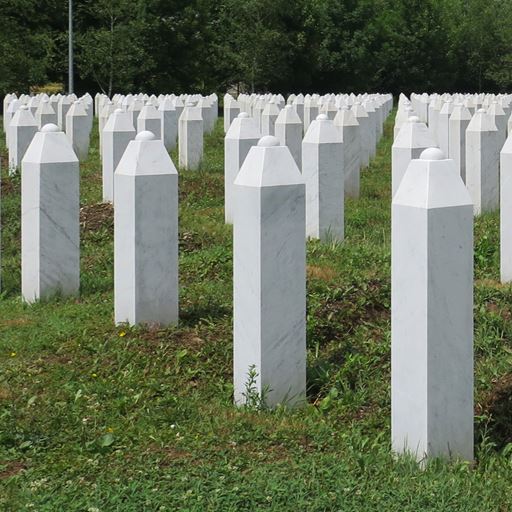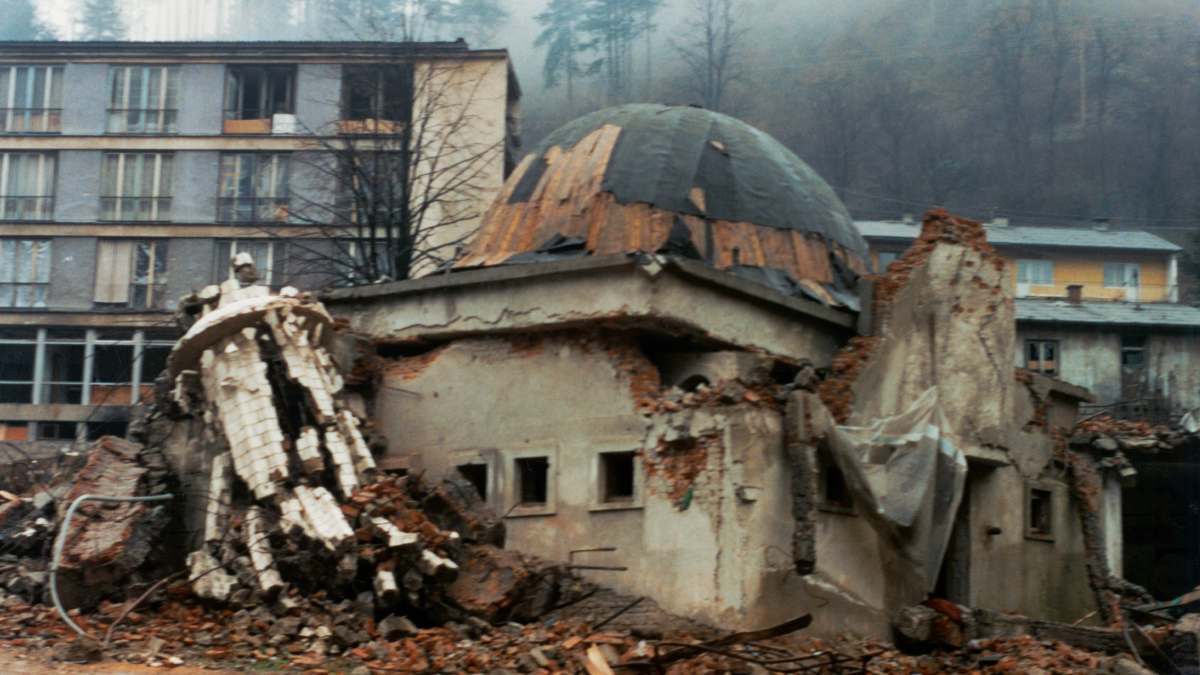Remembering Srebrenica
-
Date
Sun 5 Jul 20

25 years ago this month, a genocide unfolded in Srebrenica. To mark Srebrenica Memorial Week, Essex Human Rights Centre has issued a statement and Members of the Centre have offered reflections.
***Trigger Warning: this report contains descriptions of sexual violence and genocide.
The Srebrenica genocide
Between late 1992 and the spring of 1995, the conflict in the former Yugoslavia led to thousands of Bosnian Muslims seeking refuge in the area around Srebrenica, a town in eastern Bosnia and Herzegovina.
To protect this group, on 16 April 1993 the United Nations Security Council passed Resolution 819, demanding all parties treat "Srebrenica and its surroundings as a safe area which should be free from any armed attacks or any other hostile act."
Despite this - and the presence of United Nations peacekeepers in the area - on 6 July 1995, Bosnian Serb forces attacked Srebrenica.
Following a decree from the Bosnian Serb leader Radovan Karadzic that the Bosnian Serb Army should make life "unbearable" for those living in Srebrenica, more than 8,000 Bosnian Muslim boys and men were detained, abused, tortured and executed.
The International Court of Justice and the International Criminal Tribunal for the former Yugoslavia established that the ethnic cleansing that took place in Srebrenica amounted to genocide.
A statement from Essex Human Rights Centre to mark Srebrenica Memorial Week 2020
In the worst mass atrocity on European soil since 1945, over 8,000 Muslims, including children, were massacred, in July 25 years ago. Today, we honour the memory of those who were slain in Srebrenica, express solidarity with the survivors and reflect on the lessons of that savagery.
The important lesson that we draw from this and other genocides is that they do not happen spontaneously. Such atrocities begin with attitudes of intolerance and unchecked expressions of hostility towards others based on their identity. They are led by entrepreneurs of hate, catalyzed by discrimination and powered by impunity. They tell a tragic tale of numerous missed opportunities and are an indictment of our collective failure to stop the escalation of intolerant attitudes to mass slaughter at every stage of that collapse. The Srebrenica genocide was the tragic outcome of a sustained campaign over several years that drew on discrimination, exclusion, forced deportation, torture, systematic sexual violence and mass murder.
All of us can and should act to combat such horrors. We must challenge the exclusion, scapegoating and stigmatisation that fray social capital and destroy the pillars of trust amongst various communities resulting in devastation for all. This is all the more important in our interconnected world where every one of us can contribute online and offline to build trust and promote inclusion.
Reflections
Dr Ahmed Shaheed, Senior Lecturer in the School of Law and UN Special Rapporteur on freedom of religion or belief said: “Today, as we remember Srebrenica, we join the surviving friends and families in paying tribute to the victims of this genocide. We call on all to be clear-eyed about the lessons of the past and reject discourses of denial, and to work collectively to strengthen the societal foundations of peace and trust. ‘Never again’ must well and truly mean ‘never again’.”
Dr Carla Ferstman, Senior Lecturer in the School of Law and Human Rights Centre, and formerly the Executive Legal Advisor of the Commission for Real Property Claims of Refugees and Displaced Persons in Bosnia and Herzegovina, one of the international institutions established as part of the peace process to address the consequences of ethnic cleansing, noted that: “The genocide in Srebrenica occurred within a context of ethnic cleansing involving mass expulsions of the civilian population, unlawful confinements, enforced disappearances, mass rape, sexual assault, torture, as well as the destruction of mosques and community centres. It has left massive scars on the local population. There have been vital efforts to secure accountability, which have resulted in important convictions of senior military leaders for the genocide. But it is also important to recognise the need to secure justice for victims, to recognise the suffering they have endured, and to ensure their right to a remedy and reparations. That fight continues.”
Dr Andrew Fagan, Director of the Human Rights Centre, said: "One of the main reasons for the establishment of the modern human rights movement was the Holocaust: a European genocide. Despite the development of a vast body of international human rights law and the growth of a global human rights movement, the world witnessed another European genocide barely half a century later.
"Srbrenica bears many lessons for us today. One of the most important is that the human rights community must never assume that our work is complete, particularly in those parts of the world where it is wrongly assumed that human rights are largely secure.
"The vital need to never become complacent is fundamental to the Human Rights Centre's approach to supporting the human rights project and hence the importance of remembering the genocide suffered by Bosnian Muslims in Srebrenica in 1995."
Our thanks to Amnesty International for the image used on this page.





